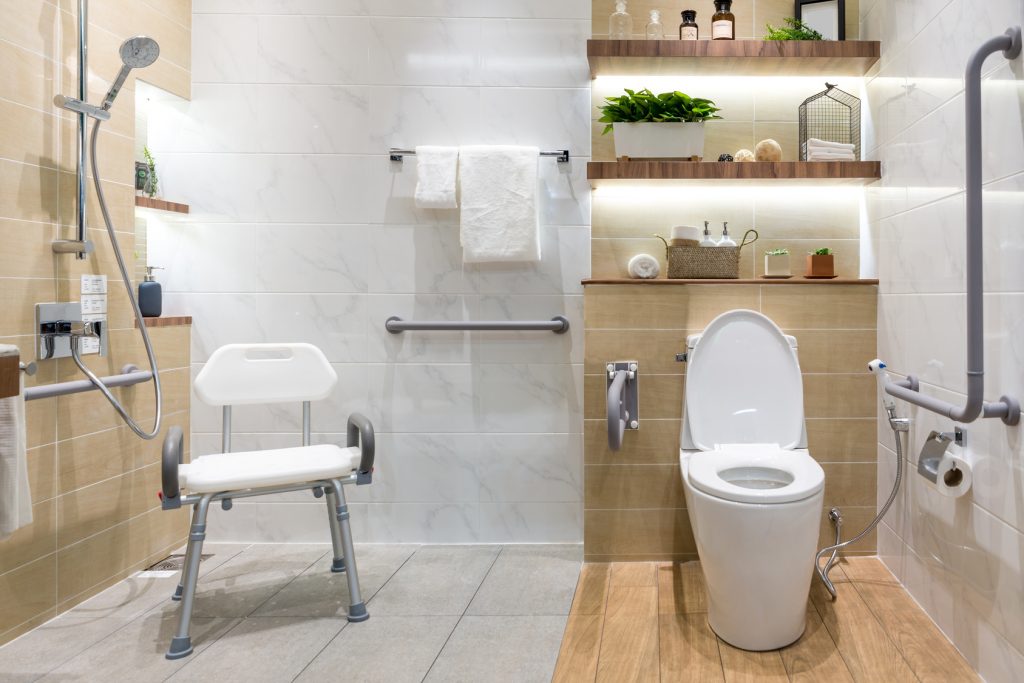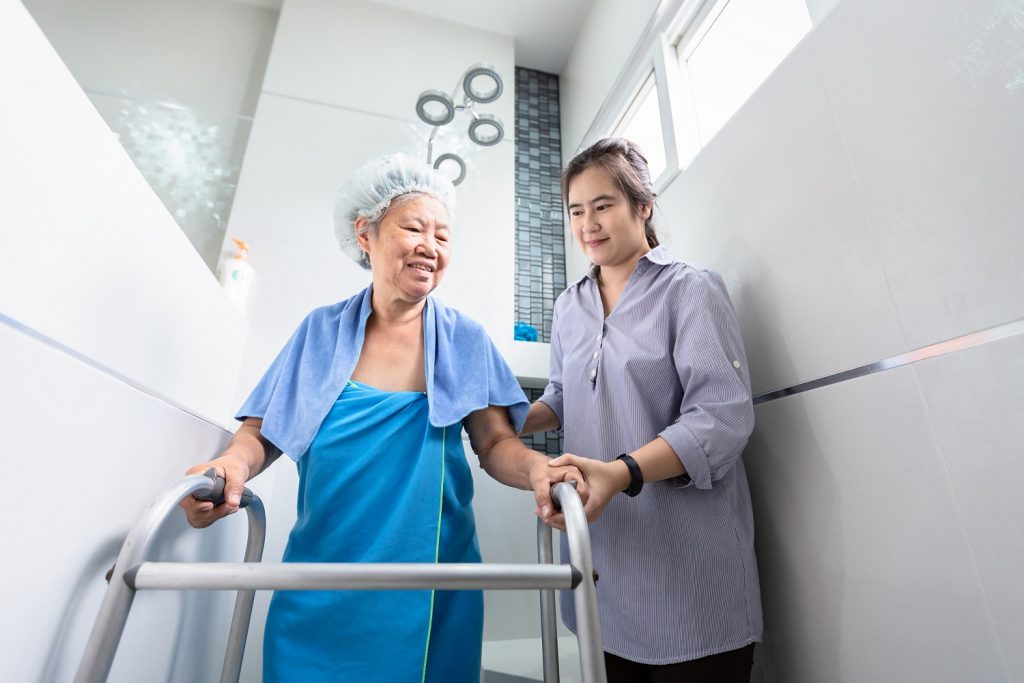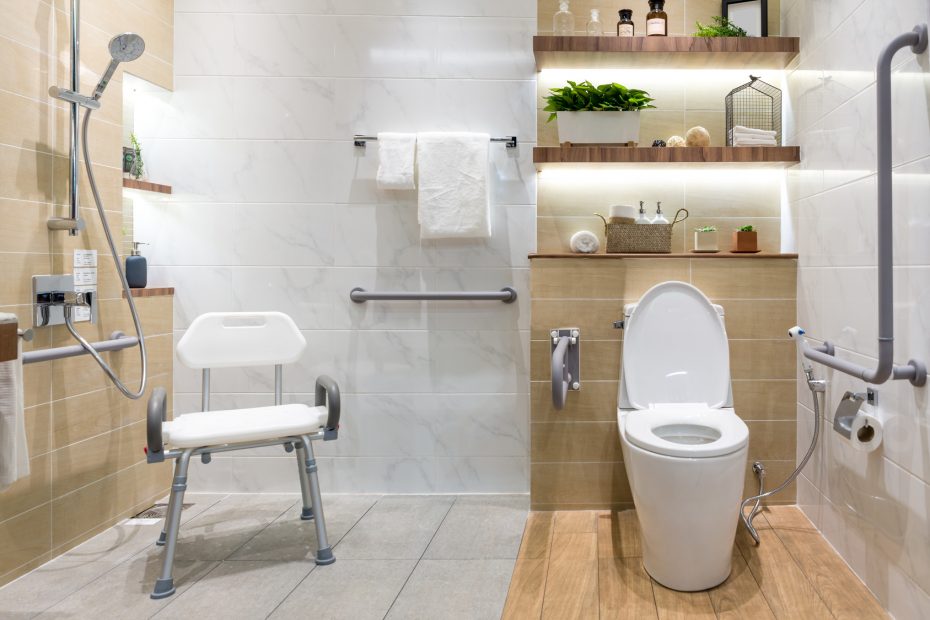
The bathroom is fraught with hazards that include slippery floors, humid conditions, and slick surfaces. It’s understandable why many seniors feel apprehensive about stepping into the tub or shower. Fortunately, there are a variety of bath products for the elderly available to help them navigate the bathroom with confidence.
Many older adults experience balance issues, making the bathroom a daunting place. The fear of falling on hard, slippery tiles and risking injury or hospitalization is a legitimate concern, especially with the potential for a broken hip or ankle. This anxiety can lead seniors to avoid using the bathroom altogether. For some, bathing is not only daunting but also exhausting. The physical challenge of stepping in and out of the shower can be significant for those who are weaker. Chronic pain can be aggravated by the actions of standing, bending, or sitting, and extreme water temperatures only add to the discomfort.
Thankfully, solutions exist to make the bathroom safer and more comfortable for seniors, encouraging them to maintain their independence and personal care routines. Families and caregivers are encouraged to install or provide these elderly bathing solutions at home for seniors in their care.
1. Getting to the Bathroom
Daily nighttime bathroom trips are common for the elderly. Environmental awareness is a struggle in the darkened corridors that lead to the bathroom. Combined with seniors’ poor vision and the lack of adequate lighting, walking to the bathroom is a clear danger.
Motion night lights set up in the hallways illuminate the passageway for seniors. These lights automatically switch on upon sensing motion. Touch night lights are also easy to use, as these devices require only a touch of the lamp to turn on.
2. Accessing and Using the Sink
Seniors who have difficulty bending will resist using the bathroom sink. A faucet extender is the solution to this common predicament. The attachment may be slipped onto almost any faucet. The stream of tap water extends further, enabling the senior to wash his hands without stooping.
While at the sink, pumping hand soap out of the dispenser is a struggle for seniors with arthritis, limited mobility, or Parkinson’s disease. A touchless automatic soap dispenser disperses the right amount of soap into the seniors’ hands and encourages handwashing and cleanliness.
3. Accessing and Using the Toilet
A toilet seat raiser is ideal for seniors, since the product allows older individuals to lower themselves with the least effort. A toilet safety frame built with arms on either side gives seniors the support they need when seating themselves and rising from a toilet of any height and width.
Health conditions, like dementia and arthritis, can make cleaning up after a toilet run a hassle. Facilitating independence in the bathroom while improving personal hygiene can be readily accomplished with a non-electric bidet toilet attachment that may be used with any standard toilet.
4. Accessing and Using the Shower or Tub
A tub grip allows seniors to confidently step into and out of the tub. A larger alternative is a transfer bench with feet placed inside and outside of the tub. A transfer bench offers seniors the security and comfort to safely enter or exit the tub.
Eliminate the perceived threat of a slick tub floor by adding a slip-resistant bathmat. Ensure the bathmat features anti-bacterial properties and is manufactured out of allergen-free vinyl. Launder the machine washable bathmat regularly to maintain a hygienic environment.
Similar in design to the transfer bench, a bath and shower chair allows seniors to sit and prevents exhaustion during bathing. Innovate leg designs promote stability, while support handles add ease when seated. The added safety and comfort are beneficial for not only the senior but also the caregiver.
The following are the main types of bath chairs and benches available:
- Shower stool: The most affordable shower seat option is a plastic shower stool, and there are shower stools that come with padded, rotating seats.
- Shower chair: Shower chairs have arm and back rests, and some models can come padded.
- Folding shower chairs: Foldable shower chairs are an excellent option that take up less space.
- Bath lift chairs: These chairs are battery operated, completely waterproof, and have the ability to lift up to 300 pounds.
Adding a handheld shower wand is also a good idea, especially for seniors who must sit during their shower. With overhead shower heads, seniors may have difficulty getting water to hard-to-reach areas. A handheld shower wand allows them to wash and rinse hard to reach areas much more easily. A long-handled brush can also help seniors reach certain areas easier for more thorough cleaning.
5. Ensuring Safe Mobility in the Bathroom
A reliable grip is made possible by a flip-up bathroom grab bar. These sturdy handles may be installed on the wall near the toilet, clamped along the side of the tub, or placed inside the shower. Many grab bars are able to support up to 500 pounds.
The following are the main types of grab bars that can be installed in a senior’s bathroom:
- Permanently mounted grab bars: These grab bars are generally made from stainless steel and are bolted to the wall. They can support up to 500 pounds when installed correctly.
- Suction grab bars: Suction grab bars are cost-effective and easy to install, but they should only be used to help with balance as they cannot support much weight.
- Tub rails: These rails fit over the edge of the tub to help seniors get in and out.
Place non-skid floor mats on the bathroom floor. Ultra-thin mats are designed to securely stick to the floor. Being extremely thin, the edges will not flip up and cause the senior to trip and stumble. Seniors who utilize walkers can glide over the mat with ease
6. Hiring Professional Bath Aides
Aside from the bathroom accessories for the elderly, professional bath aides facilitate a safe and comfortable bathing experience. Caregivers might apply the senior’s favorite after-bath lotion for a spa-like experience. A professional caregiver’s experience and compassionate approach can decrease the angst associated with bathing.
Professional caregivers have more success in convincing seniors to bathe than do family caregivers. Older people feel more comfortable when a professional helps them bathe. This may in part be due to the fact that the elderly feel less embarrassment when bathed by a stranger than by a family member.

Help with Bathing from Assisting Hands Home Care
Bathing is a very important part of personal hygiene, but it is also a difficult and even dangerous task for some seniors. If your elderly loved one requires assistance with bathing and other daily activities, consider reaching out to a reputable home care agency for in-home support. Assisting Hands Home Care offers reliable assistance and support for seniors in the comfort of their own homes.
Our elder care services are non-medical yet comprehensive. Our caregivers help seniors with personal hygiene activities, meal preparation, grocery shopping, transportation, and medication reminders to ensure adherence. You can also expect our caregivers to be a companion for our loved ones while providing quality care.
Assisting Hands Home Care services are flexible to cover various needs, including respite care, post-hospitalization care, 24-hour care, and hospice care. Our caregivers are also specially trained to support individuals with Alzheimer’s and other forms of dementia.
When your elderly loved one would benefit from additional in-home support, choose Assisting Hands Home Care in Naperville, Illinois. Our caregivers pride themselves on offering the most compassionate and dedicated home care services in the area. Call us at (630) 634-9316 for a complimentary in-home consultation to begin quality elder care.
















